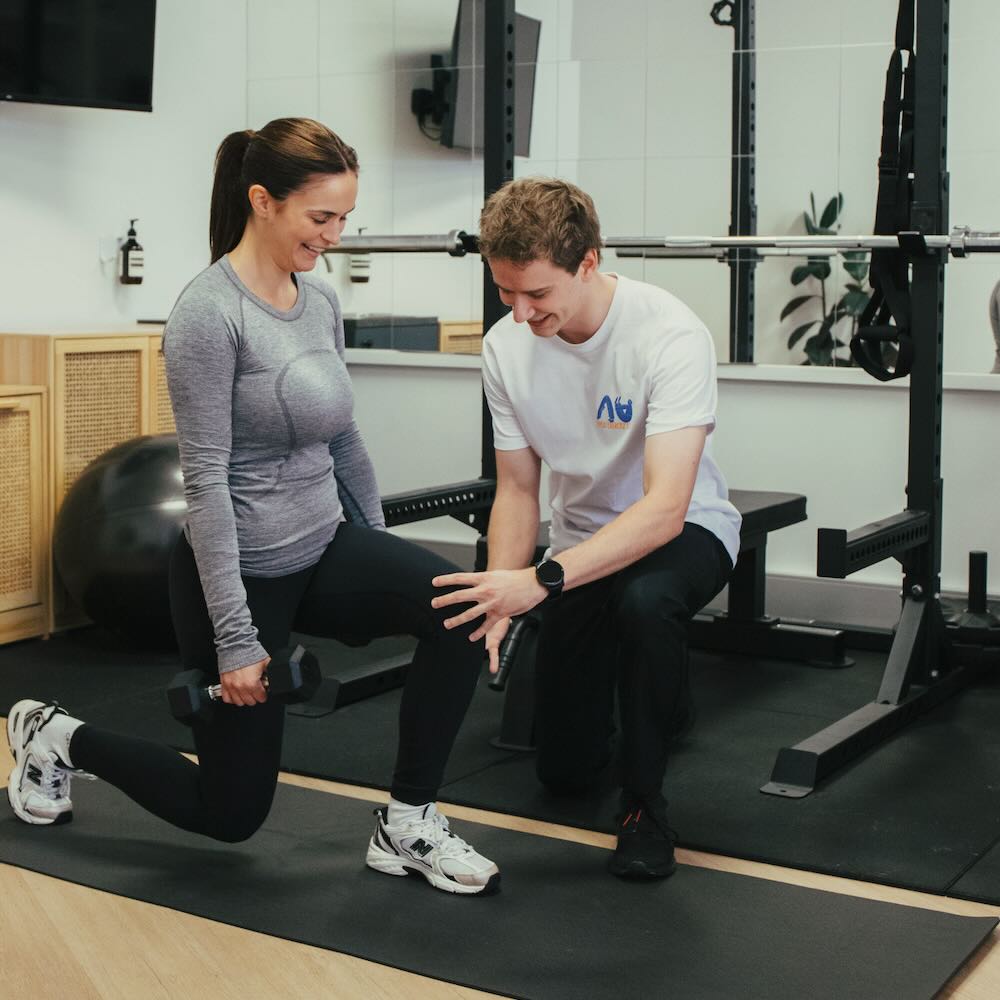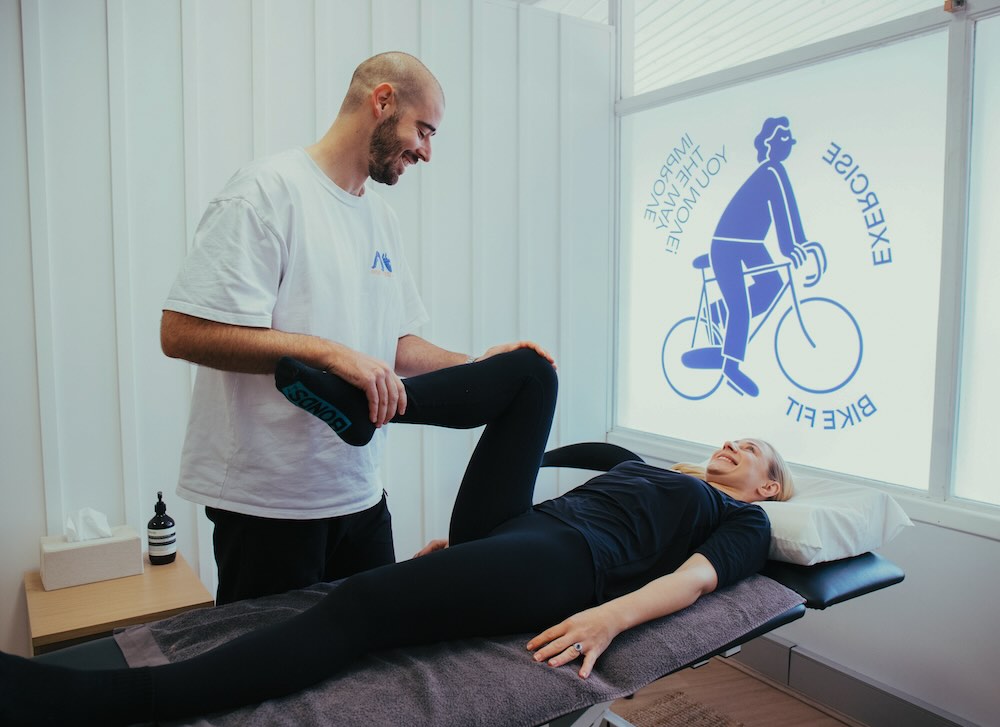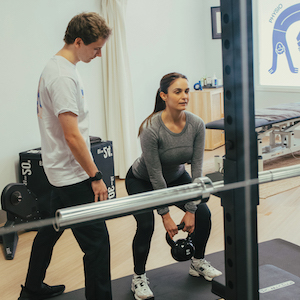Home » Physiotherapy » Ankle
Your ankles carry you through every step, jump, and stride — so when injury strikes, it can throw your whole lifestyle off balance. Whether you’ve rolled your ankle on the field, are dealing with persistent instability, or recovering from surgery, our tailored ankle physiotherapy can help you get back to moving with strength and confidence.
Book an ankle physio appointment in Perth online or over the phone at 0493 112 916.
We offer a full suite of services tailored to your needs. Whether you’ve injured your ankle, or are dealing with chronic problems. Each treatment plan is designed to restore strength, flexibility, and stability to the ankle.
Ankle sprains are one of the most common sporting and everyday injuries, often occurring when the ankle rolls inwards or outwards, stretching or tearing the ligaments. While some sprains heal quickly, repeated sprains can lead to ongoing weakness and instability if not properly rehabilitated.
Our care includes:
The Achilles tendon connects your calf muscles to your heel and plays a vital role in walking, running, and jumping. Overuse or sudden load can cause pain, stiffness, or even tearing. Without treatment, Achilles issues can become persistent and limit performance.
Our care includes:
Following an ankle fracture or surgery, stiffness, weakness, and loss of balance are common challenges. Without guided rehabilitation, recovery may be incomplete, leaving you at risk of ongoing pain or reduced mobility.
Our care includes:
Different ligaments in the ankle provide stability in various directions. Injuries to the ATFL (anterior talofibular), CFL (calcaneofibular), deltoid ligament, or the syndesmosis (“high ankle sprain”) require specific rehab strategies depending on the structures involved.
Our care includes:
Not every ankle problem is a sprain, tendon tear or fracture. Sometimes the pain you feel is a vague ache, stiffness after periods of immobility, or low-grade discomfort from overuse, early arthritis or soft-tissue tightness. Left untreated this can limit walking, sporting performance and everyday comfort.
Our care includes:

If you’ve had multiple ankle sprains, you may notice your ankle feels weak or tends to “give way.” This ongoing instability can limit confidence in daily activities and increase your risk of further injury.
Our care includes:
Chronic ankle pain can sometimes be due to joint impingement (where soft tissue gets pinched during movement) or arthritis from long-term wear and tear. Both conditions can cause stiffness, swelling, and reduced performance.
Our care includes:

Our small, dedicated team in Perth are experts in ankle care — from acute injuries and post-op rehab to chronic conditions like arthritis. We blend expert manual therapy with personalised exercise plans to get you moving better, sooner.
Ready to start your recovery?

Ankle injuries can present in many different ways — from a sudden sharp pain after rolling your ankle to ongoing stiffness or weakness that lingers long after the initial injury.
Recognising the signs early is important, as proper assessment and treatment can speed up recovery and reduce the risk of long-term issues.
Physiotherapy plays a crucial role in ankle injury management and prevention of future issues. At Physio & Exercise Lab, we focus on:
With the right physio, you don’t just return to where you were before — you come back stronger.


Every ankle injury is different — recovery depends on the type and severity of damage, as well as your activity goals. A minor ankle sprain may recover in weeks, while a fracture or surgery may require months of progressive rehab.
Our rehabilitation approach includes:

Director & Senior Physiotherapist
James started Physio and Exercise Lab after many years working in private practice; gaining experience in a vast range of sports and musculoskeletal injuries, post-operative orthopaedic rehabilitation, and hydrotherapy. He enjoys treating a variety of conditions coming through the clinic and is skilled in dealing with neck and; back pain, upper and lower limb injuries, vertigo and concussion, functional gym-based strengthening, as well as exercise/load prescription and training planning.

Physiotherapist
Kade has joined Physio and Exercise Lab after working at Albany Health Campus as an inpatient and outpatient Physiotherapist. Whilst working in Albany Kade developed a passion for treating patients with musculoskeletal and neurological deficits and decided to move back to Perth to pursue a career in private practice physiotherapy. Through his time at Albany Health Campus, Kade gained experience dealing in pre and post-operative rehabilitation, and is skilled in treating neck and back, as well as upper and lower limb musculoskeletal conditions.

Physiotherapist
Ella joined Physio and Exercise Lab in 2025 with a background in orthopaedic surgery and musculoskeletal rehabilitation. She has a keen interest in paediatric and adolescent injuries, strength and conditioning, cycling related injuries and functional neurological disorders. Ella also enjoys supporting women and older adults to improve their strength, fitness, and confidence through achievable, goal focused exercise programs. Ella has experience treating a broad range of musculoskeletal conditions and uses a blend of manual therapy, dry needling, targeted exercise rehab, education and strength and conditioning programs to improve patients understanding of their condition, build strength and effectively manage pain.
Ankle physiotherapy is a specialised form of physical therapy aimed at rehabilitating the ankle following injury or surgery. It focuses on restoring strength, flexibility, and balance, as well as improving the range of motion and reducing pain. Treatment typically includes exercises, manual therapy, and techniques to manage swelling and facilitate healing.
Physiotherapy aids in the recovery from ankle injuries by:
We advise consulting a physiotherapist as soon as possible after sustaining an ankle injury, especially if you experience significant pain, swelling, or difficulty walking. Early intervention can help to manage symptoms effectively and prevent further complications, ensuring a smoother recovery process.
The recovery time can vary significantly depending on the severity of the injury and the individual’s response to therapy. Minor ankle injuries may see improvement within a few weeks, whereas more severe injuries could require several months of physiotherapy for full recovery. Following our guidance and adhering to the prescribed rehabilitation programme is crucial for effective healing.
A typical session may include:
Your second consultation, scheduled shortly after the initial visit, offers an opportunity for feedback and questions. A streamlined re-evaluation is conducted through a physical assessment. Subsequent consultations are geared towards supporting your recovery and achieving optimal outcomes for your pain or injury.
The time frame for improvement varies depending on the individual’s condition and response to therapy. Some may notice improvements within a few sessions, while others might need a longer period of consistent therapy.
Wearing comfortable clothing and shoes that allow for movement is recommended. Review our guide on what to what to wear to a physio appointment for more specific recommendations.
It’s also helpful to bring a list of your current medications and a summary of your medical history, including any diagnostic tests related to your vestibular condition.
There are no cancellation fees or 24-hour notice requirements. Just give us a call if you can’t make it to your appointment.
A doctor’s referral is typically not required to visit us unless your condition is associated with Workers Compensation, Motor Vehicle Injury, Veterans Affairs, or a Medicare Enhanced Primary Care plan. In most cases, you can directly schedule an appointment as all our physiotherapists are primary contact practitioners, capable of providing comprehensive care without the need for a referral.
To access physiotherapy services through Medicare, you must have a referral from your GP under the Chronic Disease Management Plan, often referred to as an Enhanced Primary Care Plan (EPC). This plan is required for Medicare coverage when seeing a physiotherapist.
For more information on eligibility and how to claim, read our blog explaining how medicare can be used for physio.
As a person seeking healthcare in WA, you have the right to access, safety, respect, partnership, information, privacy, and the ability to provide feedback. For more in-depth information relating to your rights, review the Australian Charter of Healthcare Rights.
We prioritise your privacy. Our strict privacy policy ensures the confidentiality of your personal information, using it solely for your healthcare. If you have any privacy concerns or questions, please reach out, and we’ll address them promptly. Your trust is crucial to us.
Review our privacy policy here.
If you have any questions relating to our services or any feedback for our team, please get in touch with us via phone, email, or contact form.